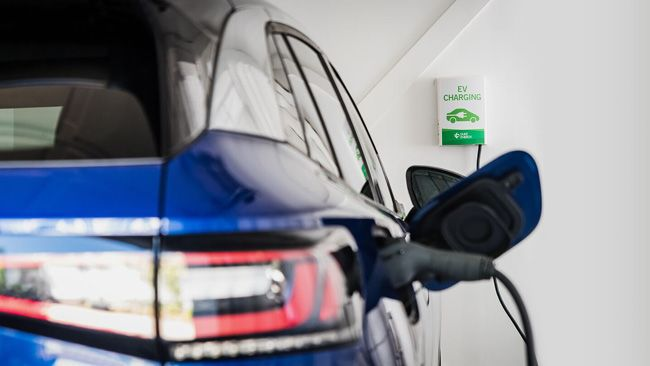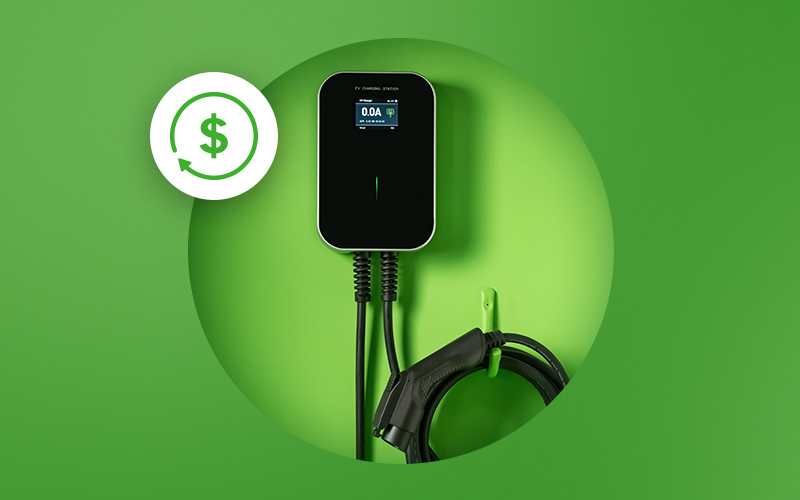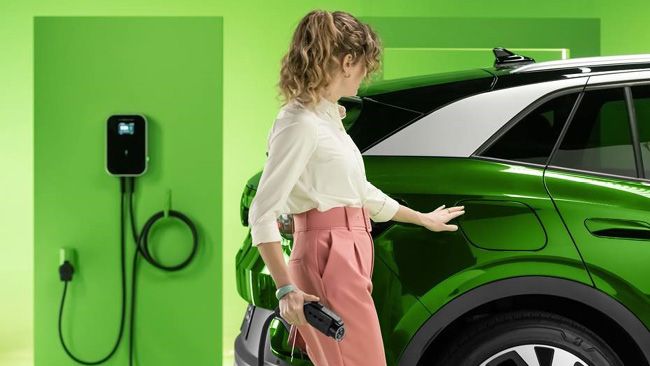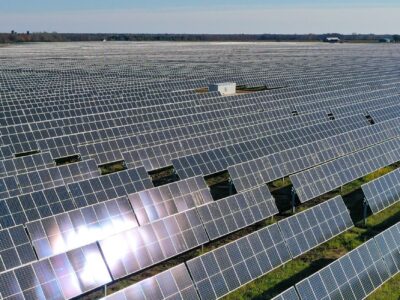Electric vehicle (EV) owners in North Carolina now have another option for charging their car batteries thanks to a new EV charger rental program from Duke Energy, the Charlotte-based utility company. The program, announced on Jan. 29, will let residential and business customers lease a charger from Duke Energy at a “low monthly cost” that covers hardware, warranty, and maintenance.
The North Carolina Utilities Commission approved the Charger Solution program in August 2023. According to a Duke Energy press release, it offers customers a “wide range of charger options,” guiding them through the selection process when evaluating their choices.

Photo Courtesy Duke Energy News Center
The program is designed to give EV drivers more charging options while federal and state government agencies build more public charging stations.
“Duke Energy continues to prepare for the electric vehicle transition, as more customers consider and choose EVs,” Kendal Bowman, Duke Energy North Carolina president, said in a statement. “By offering a variety of charger solutions, we hope our customers feel confident that they have a choice to fit their needs, with the reassurance they can rely on our expertise for maintenance.”

Photo Courtesy Duke Energy
According to the press release, the rental program is designed for customers who might not want to pay the upfront cost of buying a charger but still want the convenience of fast charging at home. Under the Duke Energy program, customers can select from a number of chargers based on their individual preferences, lifestyles, or business needs.
Residential options start at about $14 a month and include a three-year rental term for a Level 2 charger, which can usually fully recharge an all-electric vehicle within eight to 10 hours.
Non-residential options vary based on the type of charger. Options include a four-year rental term for a Level 2 charger or a seven-year one for a DC Fast Charger.
Duke Energy says the program is designed to “maximize reliability and efficiency by eliminating the hassle that can come with maintaining a charger” for non-residential customers, including businesses and multifamily dwellings.
Providing more charging options for households and businesses should help North Carolina speed up its transition to greater EV adoption. Like many other areas, the Tar Heel State needs to accelerate its pace to reach its EV targets.
According to the North Carolina Department of Transportation, as of November 2023, there were more than 70,000 zero-emission vehicle registrations in North Carolina. That’s still well below the statewide goal of 1.25 million EVs by 2030, but there has been progress. According to WS Today, the state’s EV ownership has more than tripled since 2018.

Photo Courtesy Duke Energy
The Charger Solution launch followed what Duke Energy called a “successful” first year for its corresponding Charger Prep Credit program. Under that initiative, more than 6,000 North Carolinians have gotten help preparing for Level 2 chargers through credits that aim to lower the cost of upgrading existing electrical infrastructure at homes or businesses.
The Charger Solution and Charger Prep Credit programs are part of Duke Energy’s “EV Complete” suite of offerings in North Carolina.
The company also launched a 12-month charging subscription pilot program last September in North Carolina. The Home Charging Plan allows enrolled residential customers to charge an EV at home for up to 800 kilowatt hours (kWh) per month for a fixed monthly fee. In return, participating customers will allow Duke Energy to manage charging through their automaker app and participate in periodic demand response events.
Meanwhile, Duke Energy has also initiated efforts to file for regulatory approval of similar programs across all its service areas. In total, the company has 17 active and approved EV programs and two that are pending approval.





